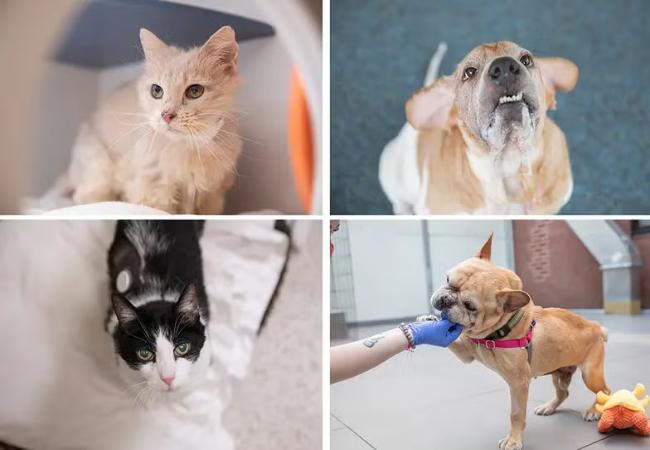Senior Pets 101 2025: Care for Aging Dogs & Cats Like a Vet 🐶🐱✨

In this article
Senior Pets 101 2025: Care for Aging Dogs & Cats Like a Vet 🐶🐱
By Dr. Duncan Houston BVSc
As our pets age, they slow down, grey a little, and change in subtle ways. But aging doesn’t mean suffering. With the right care, senior dogs and cats can enjoy happy, comfortable golden years.
I’m Dr. Duncan Houston, veterinarian and founder of Ask A Vet. Here’s how to recognize the signs of aging, support your senior pet’s health, and adjust your care routines like a vet would.
📆 When Is a Pet Considered Senior?
- Dogs: 7+ years old (giant breeds: 5–6 years)
- Cats: 10+ years old (some vets consider 7+ as “mature”)
🔍 Common Changes in Senior Pets
- Slower movement, more sleeping
- Hearing or vision loss
- Changes in appetite or weight
- Arthritis or joint stiffness
- Tooth issues or bad breath
- Behavioral shifts (confusion, anxiety)
🩺 Senior Pet Health Checklist
- 🐾 Vet visits every 6–12 months (more if chronic conditions present)
- 🩸 Annual bloodwork, urine testing, blood pressure checks
- 🦷 Dental exam and potential cleaning
- 💊 Arthritis screening and mobility assessment
🍽️ Nutrition for Senior Dogs and Cats
- Lower-calorie diets to prevent obesity
- Added joint support (glucosamine, omega-3s)
- Increased moisture for kidney health (canned or raw foods)
- Prescription diets for kidney, heart, or dental support
⚖️ Weight & Mobility Management
- Maintain ideal body condition to reduce joint stress
- Provide orthopedic beds and ramps for stairs or cars
- Daily low-impact activity (walks, gentle play, swimming)
🧠 Cognitive Health
- Senior pets can develop cognitive dysfunction (like dementia)
- Watch for night pacing, house soiling, getting “stuck” in corners
- Enrichment, routines, and puzzle feeders help maintain mental sharpness
🪥 Senior Grooming & Comfort
- Brush more often as flexibility decreases
- Wipe paws or face for pets that can’t groom themselves well
- Use softer brushes or heated pads for arthritic pets
🔗 Products That Help Seniors
- Explorer Harness – Supportive walking aid for stiff or arthritic dogs
- Bungee Lead – Reduces sudden strain during walks
👩⚕️ When to See a Vet
- Sudden weight gain/loss
- Changes in thirst, urination, or appetite
- Coughing, breathlessness, or mobility issues
- Increased anxiety, aggression, or house soiling
📋 Summary Excerpt
Your aging pet deserves comfort and care. A vet explains how to support senior dogs and cats with better nutrition, joint care, routines, and regular checkups.
❓ FAQs
-
Q: When is a dog or cat considered senior?
A: Around 7 years for dogs (earlier for large breeds), and 10+ years for cats. -
Q: What’s the best food for senior pets?
A: One with fewer calories, added joint support, and high moisture. Ask your vet for breed-specific options. -
Q: Should I take my senior pet to the vet more often?
A: Yes. Every 6 months is ideal to catch early signs of disease before they become serious.






